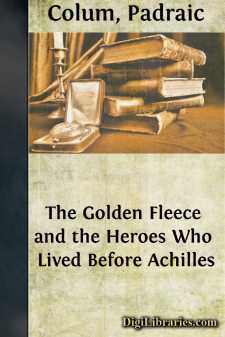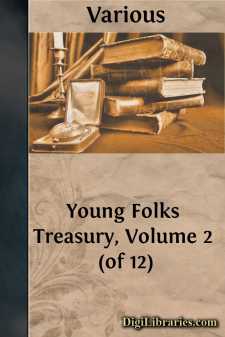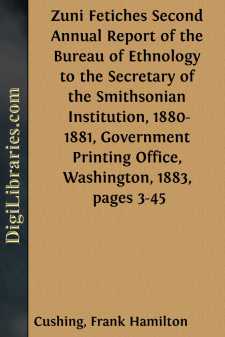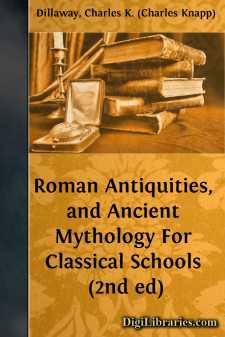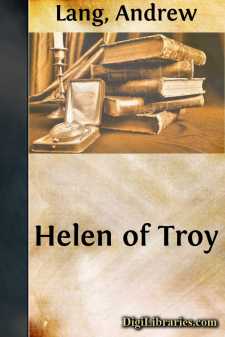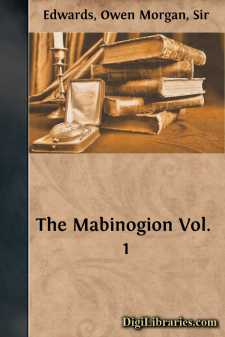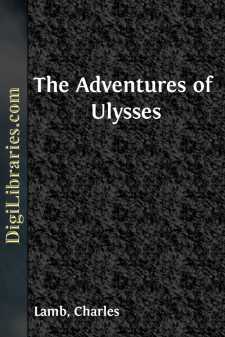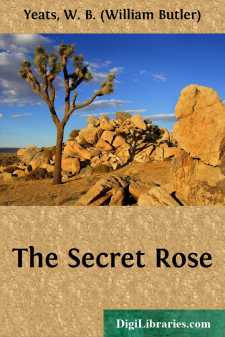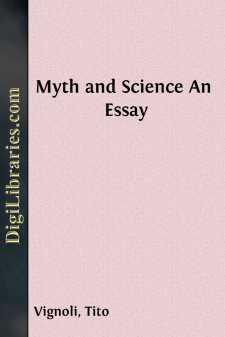Social Science
- Americana 1
- Anthropology 4
- Archaeology 7
- Criminology 2
- Emigration & Immigration 2
- Folklore & Mythology
- General 1
- Slavery 10
- Sociology 10
- Sociology of Religion 1
Folklore & Mythology Books
Sort by:
by:
Padraic Colum
I. THE YOUTH JASON A man in the garb of a slave went up the side of that mountain that is all covered with forest, the Mountain Pelion. He carried in his arms a little child. When it was full noon the slave came into a clearing of the forest so silent that it seemed empty of all life. He laid the child down on the soft moss, and then, trembling with the fear of what might come before him, he raised a...
more...
by:
Various
MYTHS OF GREECE AND ROME BAUCIS AND PHILEMON ADAPTED BY C.E. SMITH One evening, in times long ago, old Philemon and his wife Baucis sat at their cottage door watching the sunset. They had eaten their supper and were enjoying a quiet talk about their garden, and their cow, and the fruit trees on which the pears and apples were beginning to ripen. But their talk was very much disturbed by rude shouts and...
more...
ZUÑI PHILOSOPHY. The Á-shi-wi, or Zuñis, suppose the sun, moon, and stars, the sky, earth, and sea, in all their phenomena and elements; and all inanimate objects, as well as plants, animals, and men, to belong to one great system of all-conscious and interrelated life, in which the degrees of relationship seem to be determined largely, if not wholly, by the degrees of resemblance. In this system of...
more...
THE PRIMARY aim of this book is to explain the remarkable rule which regulated the succession to the priesthood of Diana at Aricia. When I first set myself to solve the problem more than thirty years ago, I thought that the solution could be propounded very briefly, but I soon found that to render it probable or even intelligible it was necessary to discuss certain more general questions, some of which...
more...
CHAPTER I. Foundation of Rome and Division of its Inhabitants. Ancient Italy was separated, on the north, by the Alps, from Germany. It was bounded, on the east and north-east, by the Adriatic Sea, or Mare Superum; on the south-west, by a part of the Mediterranean, called the Tuscan Sea, or Mare Inferum; and on the south, by the Fretum Siculum, called at present the strait of Messina. The south of...
more...
by:
Andrew Lang
BOOK I—THE COMING OF PARIS Of the coming of Paris to the house of Menelaus, King of Lacedaemon, and of the tale Paris told concerning his past life. I. All day within the palace of the King In Lacedaemon, was there revelry,Since Menelaus with the dawn did spring Forth from his carven couch, and, climbing high The tower of outlook, gazed along the dryWhite road that runs to Pylos through...
more...
INTRODUCTION. More than half a century ago Lady Charlotte Guest gave The Mabinogion to English readers in the form which, probably, will ever most delight them. Her transcript of the Red Book of Hergest was not perfect, she found the meaning of many a Welsh phrase obscure, but her rendering is generally very accurate; and the Celtic tales retain in their new dress much of the charm, which so often...
more...
by:
Charles Lamb
CHAPTER ONE The Cicons.—The Fruit of the Lotos-tree.—Polyphemus and the Cyclops.—The Kingdom of the Winds, and God Aeolus's Fatal Present.—TheLaestrygonian Man-eaters. This history tells of the wanderings of Ulysses and his followers in their return from Troy, after the destruction of that famous city of Asia by the Grecians. He was inflamed with a desire of seeing again, after a ten...
more...
THE CRUCIFIXION OF THE OUTCAST. A man, with thin brown hair and a pale face, half ran, half walked, along the road that wound from the south to the town of Sligo. Many called him Cumhal, the son of Cormac, and many called him the Swift, Wild Horse; and he was a gleeman, and he wore a short parti-coloured doublet, and had pointed shoes, and a bulging wallet. Also he was of the blood of the Ernaans, and...
more...
by:
Tito Vignoli
CHAPTER I. THE IDEAS AND SOURCES OF MYTH. Myth, as it is understood by us, and as It will be developed and explained in this work, cannot be defined in summary terms, since its multiform and comprehensive nature embraces and includes all primitive action, as well as much which is consecutive and historical in the intelligence and feelings of man, with respect to the immediate and the reflex...
more...


